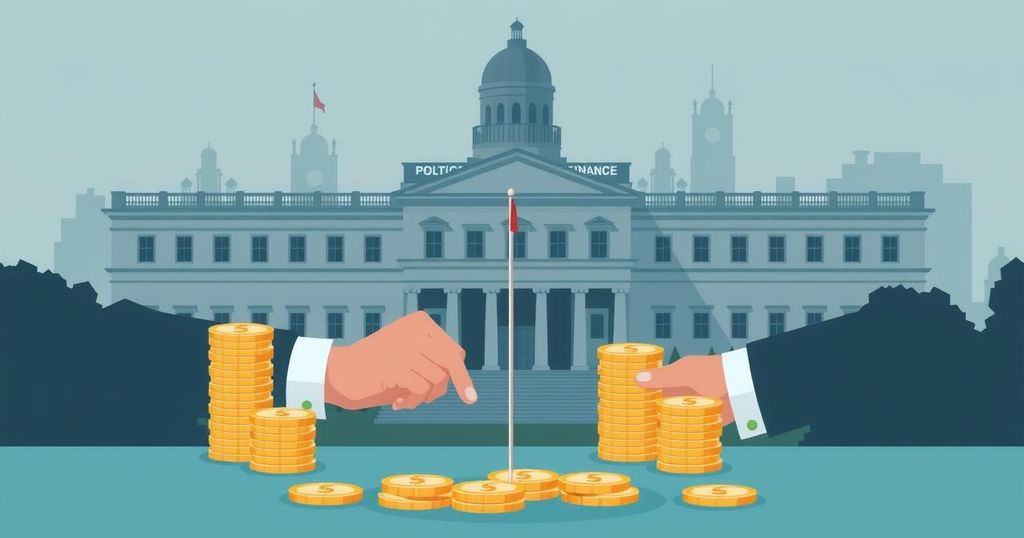Columbia University Concedes to Trump’s Demands for Funding Restoration

Columbia University has agreed to President Trump’s demands to restore its revoked $400 million federal funding, which was halted due to alleged antisemitic harassment on campus. This includes measures such as banning face masks, empowering police with arrest powers, and appointing a senior provost for oversight. Critics argue these actions undermine academic freedom and violate free speech rights, while legal challenges regarding student deportations proliferate.
Columbia University has recently accommodated a series of demands from President Donald Trump in a bid to regain its $400 million in federal funding, which was revoked last month due to claims of failing to sufficiently protect Jewish students from antisemitic harassment. In addition to reinstating funding negotiations, the university has agreed to ban face masks and grant enhanced arrest powers to 36 campus police officers. Moreover, a senior provost will oversee the department of Middle East, South Asian, and African Studies as well as the Center for Palestine Studies.
The situation escalated after Columbia became a focal point for protests amid escalating tensions in Gaza. Last year, demonstrators occupied Hamilton Hall, leading to a police intervention. In response to this and other actions, the Trump administration revoked Columbia’s funding, demanding immediate compliance with their list of stipulations to consider reinstating the funds.
In a significant move, Columbia communicated its compliance regarding these stipulations in a recent memo. The mandates include the banning of face masks during protests, requiring protesters to disclose their identities, appointing security officers who can arrest students, and applying oversight to Middle Eastern studies courses. The administration’s directive requested the school place specific departments into organizational receivership for five years, a measure intended to correct perceived dysfunction within those units.
Critics of the agreement assert that it represents an alarming erosion of academic freedom and an encroachment on free speech. Activists argue these demands impose political control over university curricula and speaker policies. Notably, Sarah Leah Whitson of Democracy for the Arab World Now emphasized that such compliance would undermine academic freedoms nationwide by setting a detrimental precedent for all institutions.
Additionally, recent arrests of student activists have raised concerns about legal overreach. Mahmoud Khalil, one of the key organizers of protests, faces deportation following an ICE intervention despite being a permanent resident. He contends that his deportation threatens his rights to free speech and due process. A federal court ruling acknowledged the importance of the constitutional guarantee of due process in his case.
Legal actions are also underway to protect universities from being compelled to disclose student information to federal agencies. A recent ruling prevented Columbia from sharing student data without ensuring due process, amid rising anxieties over government intrusion on students’ rights, particularly among those from Muslim and Arab communities.
Columbia University’s response to the Trump administration’s demands, including restrictions on protest activities and enhanced police powers, highlights the growing tension between institutional autonomy and political pressure. Critics warn these concessions threaten academic freedom and civil rights, marking a pivotal moment for universities nationwide. As evident in the cases of arrested student activists, legal battles concerning free speech and immigration rights will likely continue, underscoring the complexities at the intersection of education and federal oversight.
Original Source: www.aljazeera.com







